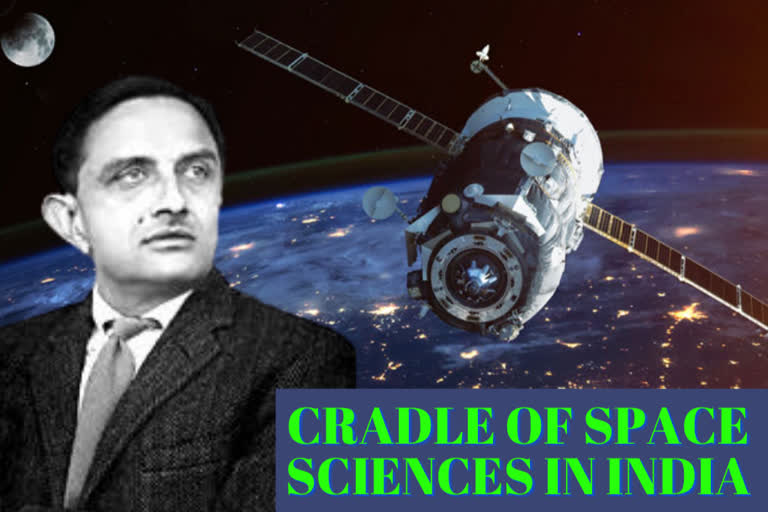Hyderabad:Today, on 12 August 2020, India and her space industry are celebrating a very special person in the history of India's space program.
The day marks the 101-year birth anniversary of Dr Vikram A Sarabhai, the founding father of ISRO, and a rare combination of scientist, innovator, industrialist and visionary.
The award-winning Indian physicist is also popularly remembered as "the father of India’s space programme."
Dr Vikram Ambalal Sarabhai is considered as the Father of the Indian space program; He was a great institution builder and established or helped to establish a large number of institutions in diverse fields. He was instrumental in establishing the Physical Research Laboratory (PRL) in Ahmedabad.
The Sarabhai family was an important and rich Jain business family. His father Ambalal Sarabhai was an affluent industrialist and owned many mills in Gujarat. Vikram Sarabhai was one of the eight children of Ambalal and Sarla Devi.
- Influences
He was greatly influenced by men like Mahatama Gandhi, Rabindranath Tagore, J Krishna Murthi, Motilal Nehru, V.S Shrinivasa Shashtri, Jawaharlal Nehru, Sarojini Naidu, Maulana Azad, C.F Andrews and C.V Raman. His home was often visited by these personalities and interaction with them helped him build a character and interest in varied subjects.
- Education
Vikram Sarabhai was homeschooled along with his siblings where their parents also set up laboratories and workshops. He had a special interest in Mathematics and science since childhood. Sarabhai matriculated from the Gujarat College in Ahmedabad after passing the Intermediate Science examination.
After completing his college education, he went to England to study at Cambridge University where he passed the Tripos examination in 194 in Natural Sciences.
In 1947, he got PhD for his work on photofission (Cosmic Ray investigation in Tropical Latitudes) at the Cavendish Laboratory in Cambridge.
- Research
He had a special interest in cosmic rays and thus his research is greatly influenced by this. He did research on cosmic rays for some time at the Poona Central Metrological Station and later went to Kashmir to continue his research. He also undertook research in cosmic rays under physicist Sir CV Raman at the Indian Institute of Science, Bangalore.
